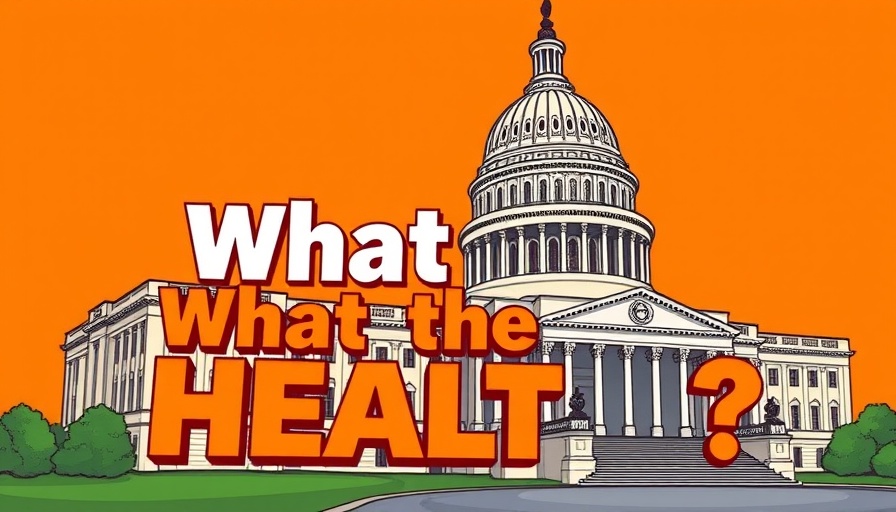
Understanding Trump's Budget Law and Its Impact on Health Programs
On July 4, 2025, President Donald Trump signed a monumental budget law that fundamentally alters the landscape of health programs in the United States. This legislation earmarks billions in cuts primarily targeting Medicaid, which provides health coverage to millions of Americans, particularly low-income families and individuals with disabilities. This dramatic shift raises questions about the future of health security for vulnerable populations and the broader implications for public health.
The Effects on Immigrants and Health Coverage
Among the most concerning aspects of Trump’s budget law is its approach to immigration and access to healthcare benefits. A significant number of legally residing immigrants may find themselves cut off from essential services. While positioned as a measure against illegal immigration, many individuals, including refugees and survivors of domestic abuse, will also be barred from Medicaid and Affordable Care Act subsidies. This could create a health crisis among populations who have traditionally relied on these programs, exacerbating existing disparities in healthcare access.
Employment Challenges and Job Security in Health Agencies
The law's passage comes amidst a climate of uncertainty for employees within the Department of Health and Human Services (HHS). Reports of anticipated layoffs create a tense atmosphere within the agency, a blow not only to workers but also to public health advocacy and program administration. As the health sector faces potential attrition of skilled personnel, the continuity and efficacy of healthcare services could be at risk.
The Supreme Court's Influence on Federal Employment
A recent Supreme Court ruling empowers the Trump administration to utilize executive authority to lay off federal workers. This decision compounds fears about job security within HHS and other agencies, as many anticipate a flurry of job cuts. Such instability could deter skilled professionals from entering or remaining in the public health sector, ultimately affecting the quality of care provided to the nation.
Public Health Organizations Respond
In response to the sweeping changes prompted by the new law, public health organizations have mobilized to file lawsuits against the Trump administration, particularly regarding changes to COVID-19 vaccine recommendations. The health landscape is in flux, as organizations and insurers scramble to comprehend the new directives. The cancellation of crucial meetings, such as that of the U.S. Preventive Services Task Force, further signals potential shifts in public health policies under the current administration.
Interviews and Insights from Health Experts
In a recent discussion, KFF Health News' Julie Rovner interviewed Julie Appleby, shedding light on exorbitant medical costs related to childhood immunizations. This segment provided critical insights into the financial burdens placed on families, which may soon be exacerbated by the new policies. In a climate where healthcare costs are already escalating, the effects of the new budget law on family finances remain to be seen.
Complementing Perspectives from Health Journalism
Panelists from leading news outlets highlighted key stories that resonate with current health policy shifts. For instance, discussions surrounding the corporatization of healthcare and accountability in medical practices are not only timely but essential for understanding the evolving dynamics of health service delivery across the nation. Such narratives reflect the urgent need for transparency and accountability within the healthcare system as it adapts to the changing regulatory landscape.
Call to Action: Stay Informed and Engaged
As these developments unfold, business leaders, healthcare professionals, and the general public must stay informed about how these changes could influence both health outcomes and business operations. Understanding the intersection between policy changes and the health of consumers is crucial for making informed decisions in the workplace and beyond. Sign up for updates from trusted health news outlets and engage in discussions surrounding these critical issues in healthcare.
By taking part in this ongoing conversation, we can advocate for better health policies that support equitable access to care for all.
 Add Row
Add Row  Add
Add 




 Add Row
Add Row  Add
Add 

Write A Comment